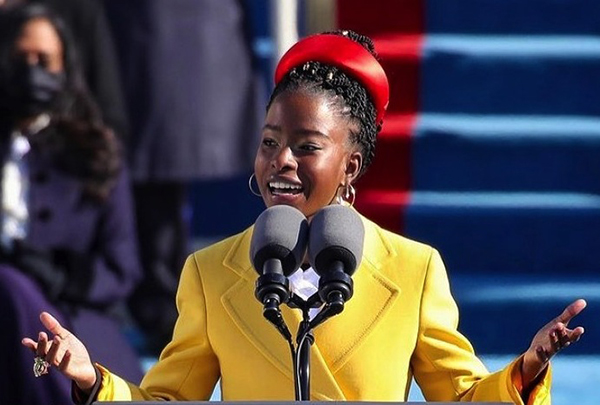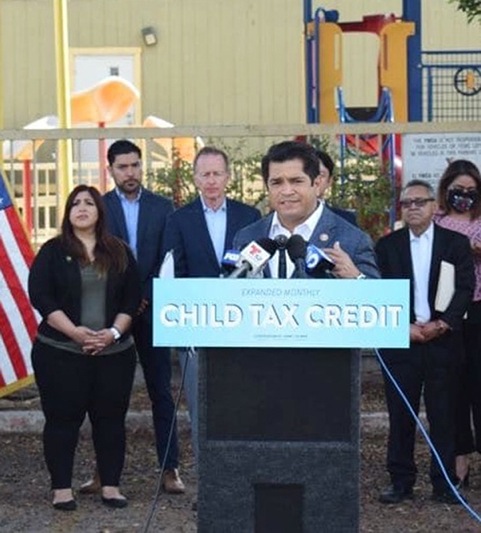South L.A. could lose Black council seat as Price’s Latino deputy emerges in 9th District

LOS ANGELES — The 9th Council District on the Los Angeles City Council has been represented by a Black elected official for more than 60 years. That could change as early as next year.
Councilman Curren Price is termed out of office in 2026 and his longtime aide, José Ugarte, has emerged as the early frontrunner in the race to succeed him. Ugarte, who is Latino, raised more than $211,000 during the most recent campaign finance reporting period, according to filings with the Los Angeles City Ethics Commission.
Though the official candidate filing window doesn’t open until February 2026, Ugarte’s campaign committee has already secured more than $187,000 in cash on hand. A spokesperson for the Ethics Commission confirmed that Ugarte has filed the required Form 501 to legally raise funds and is in full compliance.
The emergence of Ugarte in a district long represented by Black leaders has sparked concern about the future of Black political power in South Los Angeles.
Pastor K.W. Tulloss, former president of the Baptist Ministers Conference of Los Angeles and Southern California, said the political shift reflects larger demographic trends — but representation still matters.
“The African-American voter bloc is still intact in that district,” Tulloss said. “But there’s no viable Black candidate who’s stepped forward so far. We would miss someone who has the heart of our community.”
Still, Tulloss believes Black voters remain a powerful force.
“We’ll be the deciding factor,” he said. “The gateway to winning that seat runs through the African American church. A lot of our churches still make up a huge part of the 9th District.”
The 9th District includes parts of downtown Los Angeles and stretches south through historic South Central, including neighborhoods such as Exposition Park, Central-Alameda, and Florence. Over the last two decades, the district’s demographics have shifted to become overwhelmingly Latino.
Political consultant Mike Trujillo, who has advised numerous local campaigns, said Ugarte has emerged as the clear frontrunner — not just because of his financial backing, but because of the groundwork he’s laid in the district.
“José Ugarte has put in the work of listening to the community,” Trujillo said. “He’s built relationships with dozens of local leaders, and he’s developed the most grassroots support.”
Still, Trujillo emphasized that winning in District 9 will require more than Latino backing alone.
“The African-American vote is still very influential,” he said. “Whoever wins this seat will have shown that they can build a coalition — someone who can speak to both longtime Black residents and newly arrived Latino voters.”
That coalition must address both shared and distinct concerns, Trujillo added — from public safety and clean parks to equitable city services. He described Ugarte as a “master field general” with a deep strength in door-to-door organizing.
“He’s a strong communicator one-on-one,” Trujillo said. “You’ll see an army of volunteers going door to door. That’s going to be the hallmark of his campaign.”
Asked whether the race might mark the beginning of a broader shift in L.A. politics, Trujillo said District 9 is likely an outlier — not a signal of citywide change.
“I think this will be the only council seat that flips from Black to Latino over the next 15 years,” he said. “The other two Black-held seats [Districts 8 and 10] will remain. This one is different — because of the demographics and because of the candidate.”
The Rev. William D. Smart Jr., president of the Southern Christian Leadership Conference of Southern California, said the shift in representation should not come as a surprise — but it should be met with intention.
“We’ve watched this demographic shift for a decade. Everyone knew this day was coming,” Smart said. “But whoever wins must understand the legacy they’re stepping into.”
Smart said Black voters still want leaders who can deliver — and who won’t forget the needs of South L.A.’s most vulnerable.
“Race still matters, but policy and presence matter more,” he said. “This is still a time for inclusion. Everyone must have a voice.”
Leatha Clay Davis has lived in South Los Angeles for more than 60 years. She remembers when the area that is now Council District 9 was overwhelmingly Black — and when political power still rested outside the community.
“When I came here in the ’60s, it was all Black,” Davis said. “But segregation was still showing its face. White people were running everything. Even if Black folks were educated, they weren’t given the same opportunities.”
Over the decades, Black leaders gained ground — electing council members like Gilbert Lindsay, Jan Perry and others who came up through the civil rights era. Now, as the district prepares for the 2026 election, Davis said she’s watching with cautious reflection.
“It feels like Latinos have taken over Los Angeles. And we can’t deny that,” she said. “But I believe in equality. If someone is qualified and they have the heart for all people, then why not?”
She recalled one of the few white leaders who earned the Black community’s trust: Kenneth Hahn, the late L.A. County supervisor who represented South Los Angeles for decades and was known for championing civil rights and health care access in underserved neighborhoods.
“Kenneth Hahn didn’t live here, but he felt our struggle,” Davis said. “He had a business here, and he helped Black folks. That’s why we supported him.”
She said she’s heard of José Ugarte, but doesn’t yet know enough about him to judge. While Davis still values Black leadership, she said representation must be paired with competence and inclusion.
“If I put you up there and you’re Black and you don’t know what you’re doing, then I’m in more trouble than I was before,” she said. “Race doesn’t matter if the person is qualified.”
Her message to voters was simple: “If you’re not included in what they’re fighting for, don’t vote for them.”
Stephen Oduntan is a freelance reporter for Wave Newspapers.





